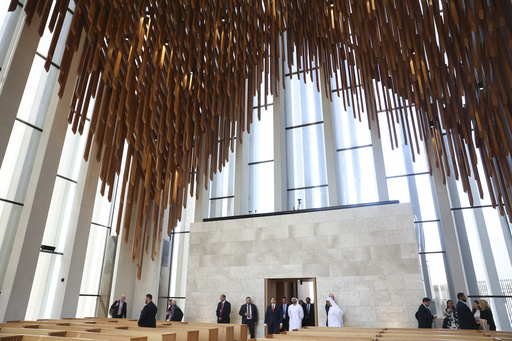
ABU DHABI, United Arab Emirates — U.S. Secretary of State Marco Rubio concluded his overseas visit on Wednesday by meeting with the United Arab Emirates’ leader, Sheikh Mohammed bin Zayed Al Nahyan. This engagement marked the highest-level interaction between the United States and Russia since the latter launched its extensive invasion of Ukraine in 2022.
Rubio’s discussions with Sheikh Mohammed occurred amid ongoing efforts by the United States to uphold a fragile ceasefire in the Gaza Strip involving Israel and the militant group Hamas. The UAE has played a crucial role in regional diplomacy, having formally recognized Israel in 2020 during the administration of former President Donald Trump, and has been involved in mediating agreements such as prisoner exchanges between Ukraine and Russia. Earlier in the week, President Volodymyr Zelenskyy of Ukraine had a meeting with Sheikh Mohammed.
During their conversation, Rubio expressed gratitude to the UAE for their resilient partnership, which has been characterized by strong economic relationships, defense collaborations, and shared goals for regional stability, according to a statement from State Department spokesperson Tammy Bruce.
Topics discussed during the meeting included artificial intelligence, the Gaza conflict, and issues concerning Syria, Lebanon, and the Red Sea, a region previously affected by attacks from Yemen’s Houthi rebels until the recent ceasefire in Gaza, added Bruce.
The UAE’s official communication emphasized the discussions regarding the Gaza Strip and the Palestinian situation during the roughly 30-minute meeting involving Rubio, Sheikh Mohammed, and Sheikh Abdullah bin Zayed Al Nahyan, the foreign minister of the UAE. The state-run WAM news agency reported that Sheikh Mohammed conveyed the UAE’s strong opposition to any actions aimed at displacing the Palestinian population from Gaza.
In previous remarks, Trump has suggested a permanent removal of over 2 million Palestinians from Gaza, indicating that they would not be allowed to return and proposing at one point that he might pressure neighboring countries like Egypt and Jordan to accept them by threatening U.S. aid reductions.
Sheikh Mohammed also highlighted the need for reconstruction efforts in Gaza to be accompanied by a “comprehensive and lasting peace” that would facilitate the establishment of a Palestinian state, comprising Gaza and the West Bank.
Both the UAE and Saudi Arabia are being considered as potential venues for dialogue aimed at resolving the ongoing conflict in Ukraine, which will mark its third anniversary on Monday. Saudi Arabia has also been proposed as a possible location for a meeting between Trump and Russian President Vladimir Putin, which could enhance the diplomatic standing of Saudi Crown Prince Mohammed bin Salman.
The leaders convened with Rubio at a convention center in Abu Dhabi that is currently hosting the biennial International Defense Exhibition and Conference, where both Ukraine and Russia have showcased their military equipment despite facing sanctions from Western nations.
In addition to political discussions, Russian investments continue to pour into Dubai’s flourishing real estate market. Daily flights connecting the Emirates with Moscow serve as a crucial channel for individuals escaping military conscription as well as for the wealthy elite from Russia. Ukrainians have also sought refuge in the UAE, which is a federation of seven sheikhdoms on the Arabian Peninsula, governed under an autocratic system.
Rubio’s itinerary in Abu Dhabi additionally included a visit to the Abrahamic Family House, a landmark that encompasses a Catholic church, a Jewish synagogue, and an Islamic mosque, symbolizing interfaith harmony in the region.

